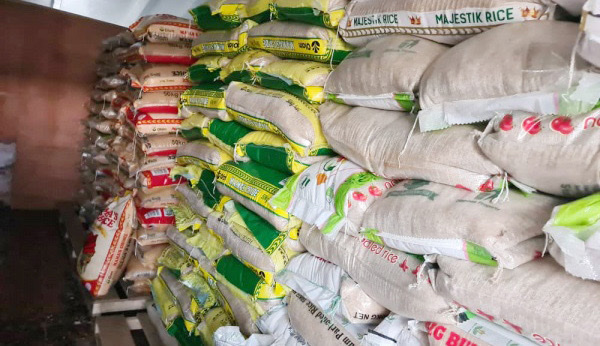Nigerian families are facing tough times as they grapple with the soaring costs of essential commodities, prompting them to adopt stringent cost-cutting measures to cope with the economic strain.
The price surge, particularly in food staples like rice, has significantly burdened households across the country. Rice, a staple in many Nigerian homes, has reached an unprecedented high of N77,000 per bag, almost tripling its previous price.
In December, the National Bureau of Statistics reported a 27-year high in inflation rates, with headline inflation soaring to 28.9 percent. This alarming rate of inflation has exacerbated the already challenging economic conditions faced by citizens.
Foodstuff vendors in major cities have lamented the nearly 200 percent increase in the cost of rice. Long-grain rice, previously priced between N45,000 and N50,000 in November, is now selling for over N70,000 per bag.
The exorbitant rise in commodity prices has triggered widespread hardship, prompting protests in various cities across the nation, from Kano to Niger, Rivers to Osun. Residents are expressing their dissatisfaction with the current economic situation, demanding urgent intervention from the government.
In response to the escalating crisis, organized labor has threatened industrial action to protest the economic hardship facing Nigerians. Despite government efforts to distribute grains and provide relief, citizens continue to struggle with the escalating costs of goods and services.
In Lagos, residents have voiced their frustrations, citing the relentless increase in food prices as a significant strain on their finances. Many families are finding it increasingly difficult to afford basic necessities, with some likening the situation to a state of war.
Entrepreneurs in various sectors are also feeling the impact of the economic downturn, as dwindling consumer spending affects sales and operations. Skincare consultants, dental therapists, and foodstuff retailers alike are grappling with declining revenues amid rising costs.
To alleviate the burden on citizens, some state governments have taken steps to provide relief measures. In Akwa Ibom State, plans are underway to establish a bulk purchase agency to regulate food prices and ensure affordability for residents. Similarly, the Kwara State Government has delivered thousands of bags of rice to labor unions for distribution to their members.
Despite these efforts, residents of Anambra State continue to face the brunt of soaring food prices, with items like rice, beans, and palm oil becoming increasingly unaffordable in local markets.
As Nigerians navigate these challenging times, the urgent need for sustainable solutions to address inflation and economic instability remains paramount.


